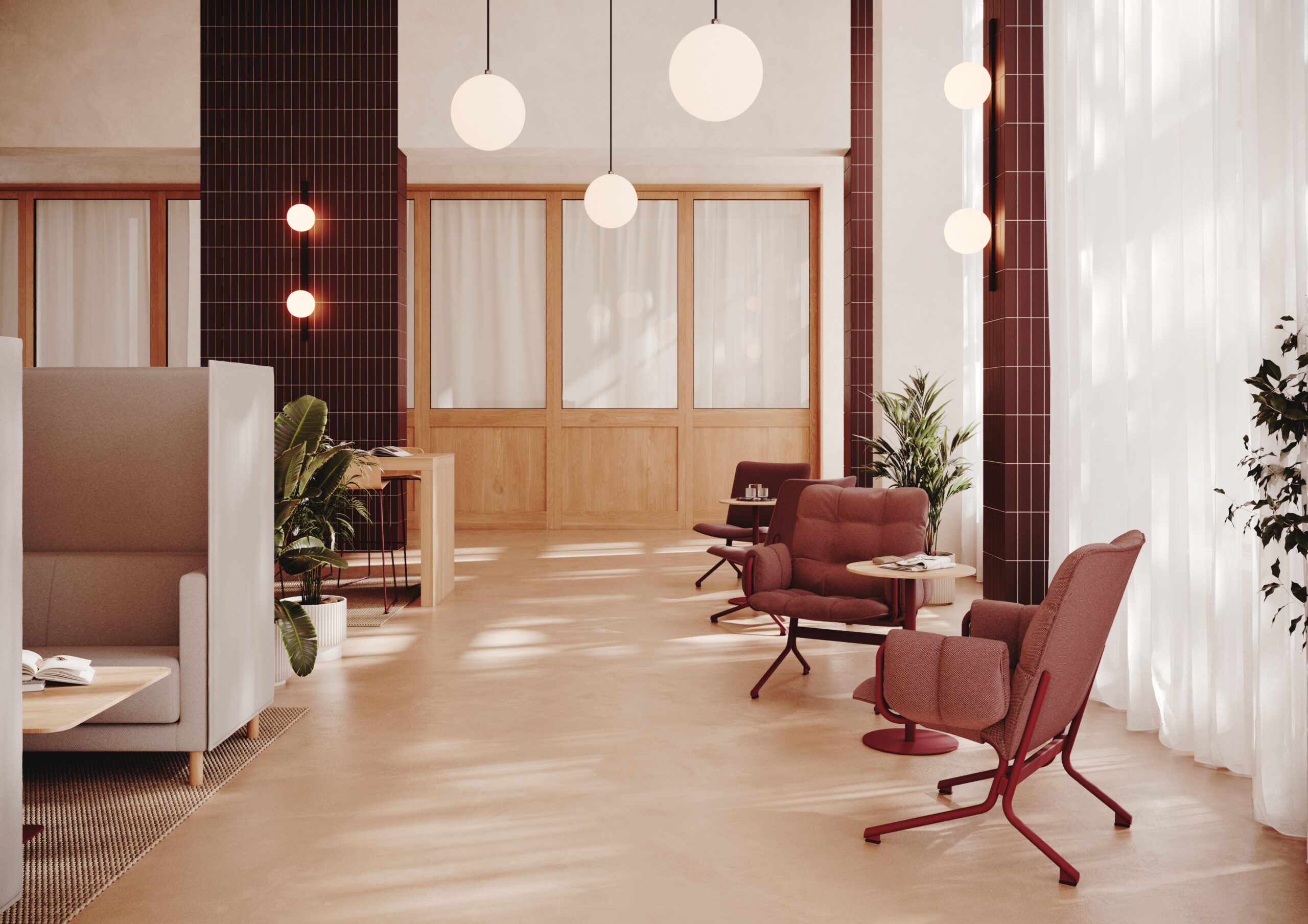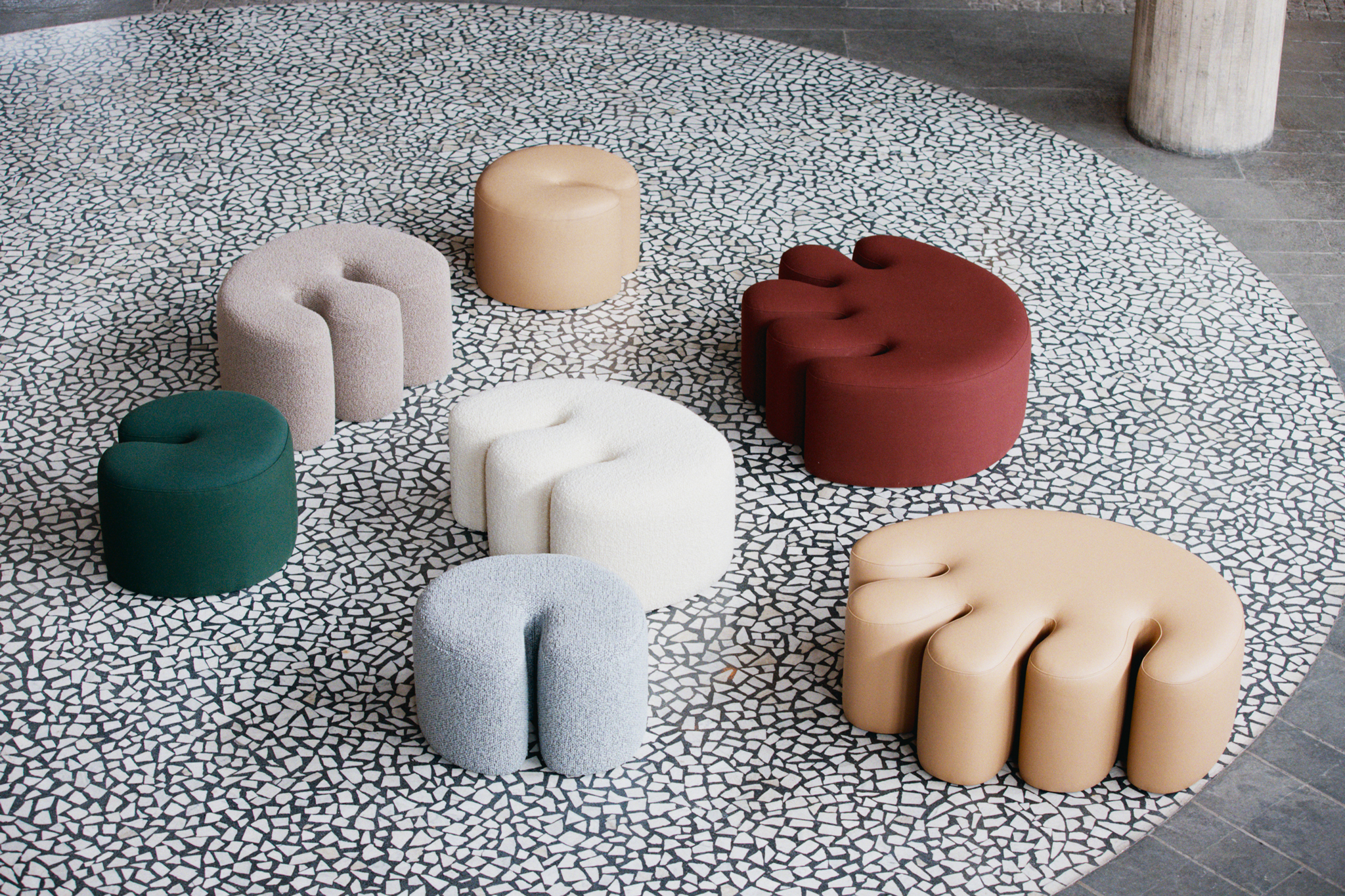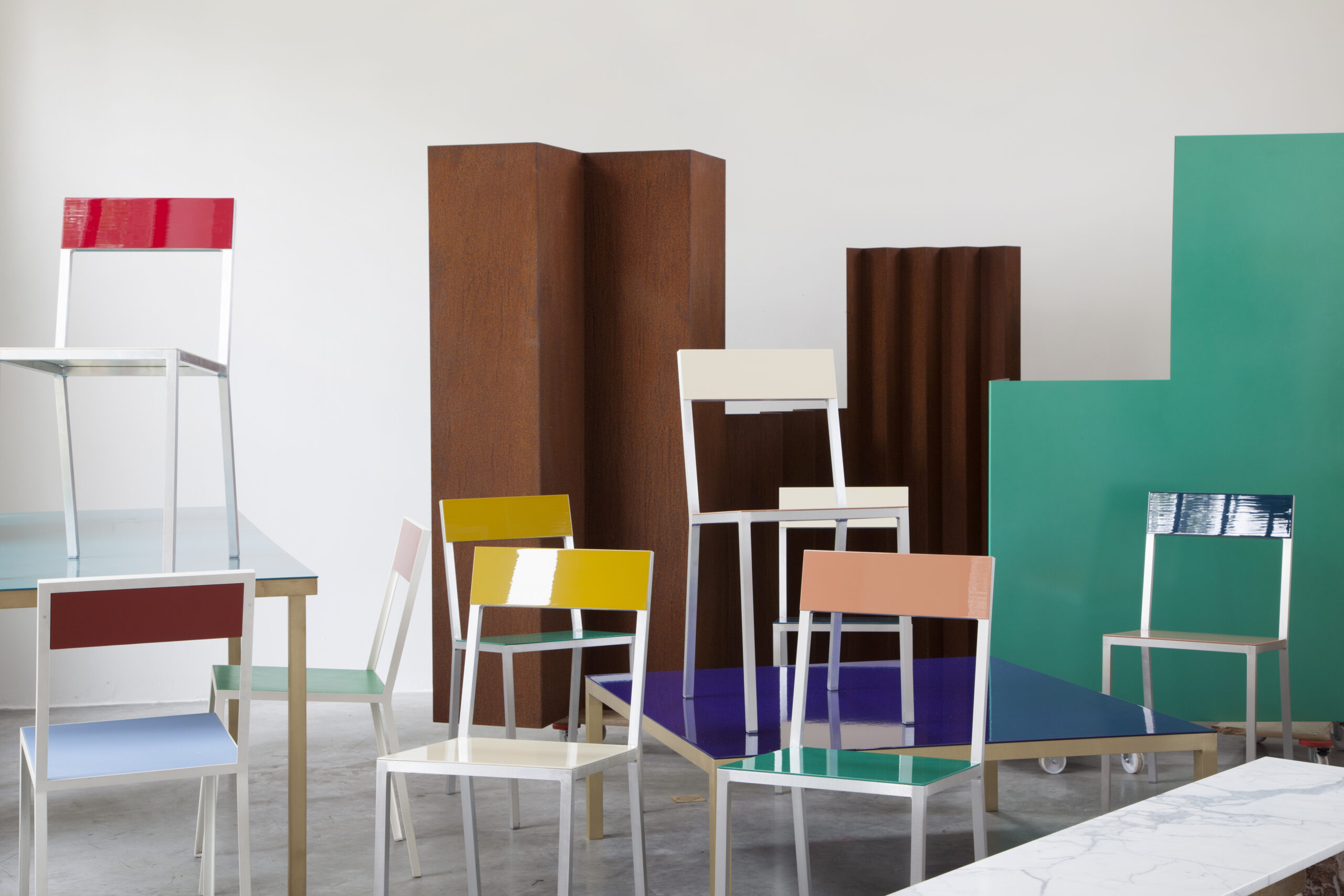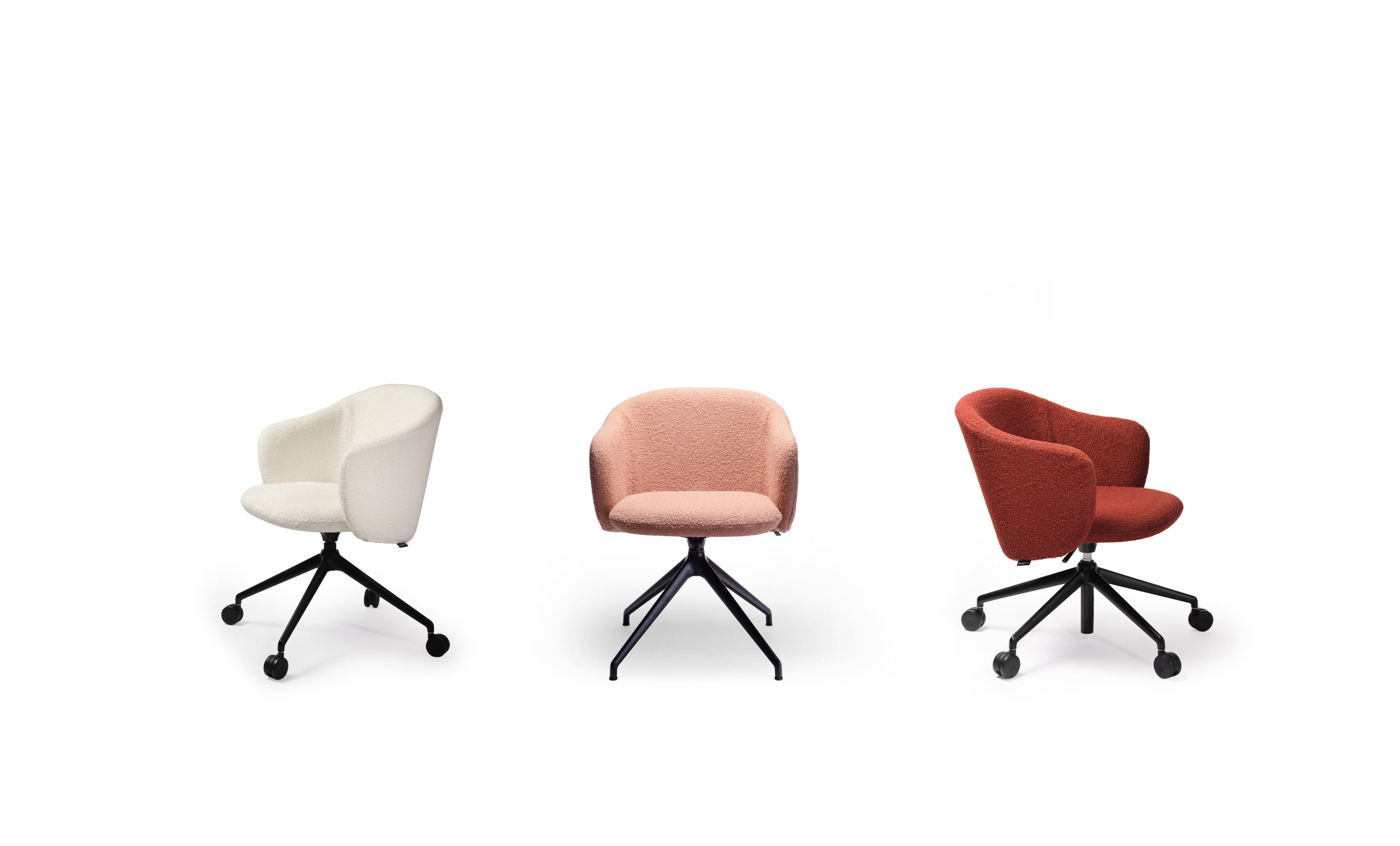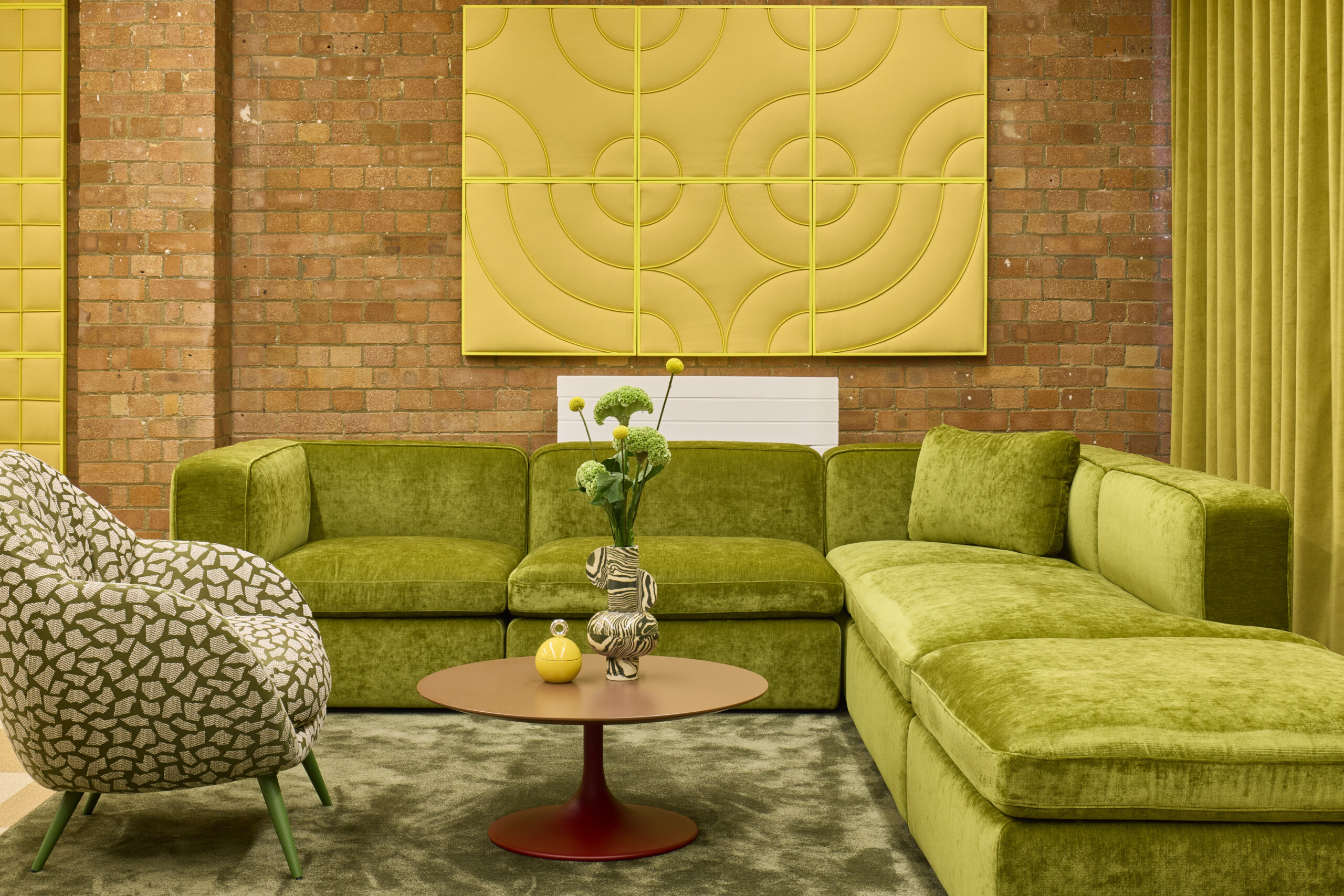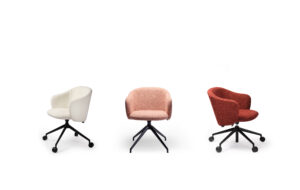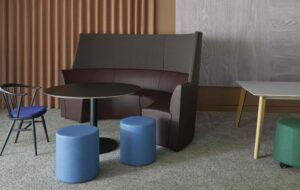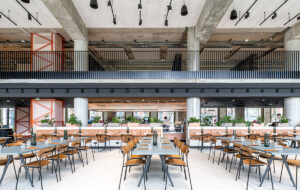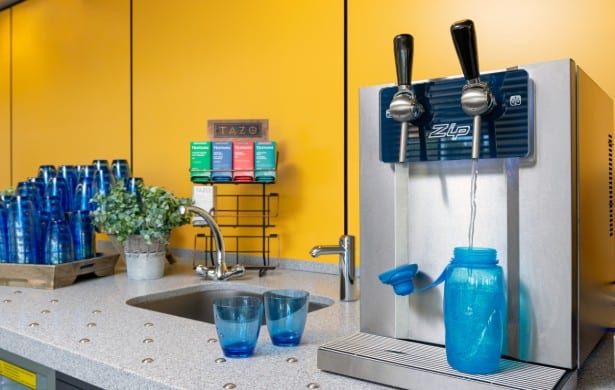 |||
|||

PROMOTIONAL FEATURE
Facilities managers, designers and office architects have long known that creating a positive work environment can boost a business’ overall performance. To do so, they need to consider not only design and layout, but also implementing wellbeing initiatives.
A recent survey by Zip Water, creators of advanced drinking water solutions, found that 97 percent of facilities managers consider that taking action on worker wellbeing is an important part of their role. Their work can provide employees with positive incentives, support and strategies that can play a crucial role in preventing stress and boosting retention. But how do you strike a balance between what’s essential for employees and what’s essential for the business?
Here are five simple ways offices can provide their employees with a wellbeing boost in the office.
Provide free reusable bottles

Proper hydration has many benefits, including increased productivity and alertness, improved cognitive function and better overall wellbeing. In fact, good hydration has been shown to boost productivity by as much as 14 percent. Ensuring employees have access to a high-quality filtered water system is therefore essential to a business – and there’s no better way to encourage them to drink more water than through offering free reusable bottles.
The Zip HydroChill – Zip’s range of bottle filling drinking water solutions – can help you promote refill culture in your workplace. With filtered chilled, sparkling and ambient water delivered at the push of a button, the HydroChill HC20 can fill up to 200 bottles (measuring 750ml each) in an hour. Zip can also provide personalised Chilly’s bottles for staff, as well as reusable glass bottles for meeting spaces, cutting down on single-use plastic.
Flexible working hours

We work in a world with Wi-Fi, so employees no longer need to be at fixed desks all day. Flexible working hours can help employees to achieve that all-important work-life balance, which can improve their overall wellbeing. For businesses, flexible working hours have also been shown to improve productivity by as much as 13 percent, letting employees work more efficiently at times that suit them best.
Create personalised workspaces
More than a third of respondents in a workplace wellbeing study by Future Workplace stated that an uncomfortable workplace environment had a significant negative impact on their work. Office managers must therefore ensure employees can personalise their workspaces to their needs, whether that’s through access to brighter lighting, noise control or standing desks. Flexibility is key.
Having optional working areas – such as meeting rooms, private booths, quiet areas and collaborative spaces – can also help to meet the varying needs of different workers, further improving productivity. It helps to improve concentration and creativity while lowering stress levels and gives staff a sense of agency.
Get people moving

A study by Ginger Comms revealed only 24 percent of British office workers always take their lunch break and 34 percent work through their lunch every single day. This, combined with the fact that most employees spend between four and nine hours a day sat down, can negatively impact their health, often resulting in absences from work.
To combat this, office managers need to look at ways they can encourage people to move more to improve staff productivity, concentration and mental wellbeing. While not all businesses can afford the cost or sacrifice the space needed for a company gym, you can encourage workers to stay fit and healthy with access to discounted fitness facilities offsite, or by providing a make-shift fitness space in a meeting room or garden area. Be proactive to make your staff more active too.
Introduce mindful areas
In 2018, work-related stress, anxiety and depression accounted for over half of all working days lost due to ill health in Great Britain. In a busy workplace it can seem nearly impossible to spare a few minutes to be more mindful, but the benefits it reaps for both an employee and employer are invaluable.
By creating an area for meditation and relaxation, you can provide employees with a safe space for some deep breaths, clearing their mind from any stress and anxieties. Some modern offices have introduced relaxation areas where employees can even lie down or take a nap.
Promoting and supporting employee wellbeing should be a number one priority for all businesses. Managers are in a unique position to put initiatives in place that encourage a happier, more productive workforce while reducing staff turnover and sickness absence – ultimately benefiting the business. Find out more about Zip Water’s work on wellbeing in the workplace here.


